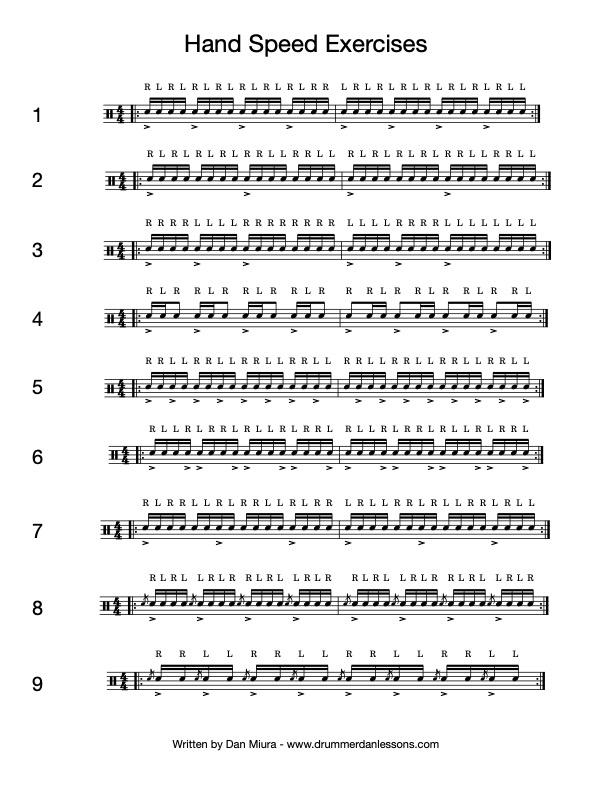Being a drummer is not only having coordination and steady time, but also a whole way of thinking and organizing information. I like to use the term "drum brain" with my students. It represents a general strategy for breaking down music (either from reading or listening), so that you can learn and memorize songs quickly.
Blog
Just some thoughts on drumming, teaching, performing, and being a working musician in NYC
Hand speed exercises (for the pad)
I've put together a sheet of 9 drum pad exercises developed specifically to build hand speed. These are all intended to be practiced with a metronome (as quarter notes).
I think every drummer asks themselves this question at some point, especially when you are a beginner. It can be hard to know how to self assess your level, but let me offer up some guidance.
Two more song sheets
Added a couple more sample song sheets, both free to download.
DYNAMICS, dynamics, DyNaMiCs
One of the most common frustrations I hear from my students is how to help make their playing sound more musical, and less robotic. My response just about every time is dynamics.
Another song sheet for beginners
Here is another song sheet, (part 3), of some fun and hopefully approachable songs.
Tips for staying motivated
I have found that about half my job as a music teacher is also being a motivational coach. This is almost double true for beginners (for the most part). It's because playing drums is actually kind of difficult and takes a lot of work. Other skills in life don't necessarily help prepare you, even a background in music. So here...
Learning drums is like learning recipes, you need to combine a lot of ingredients in order to make the final result work. There's coordination, stick control, limb independence, rhythm, steadiness, and dynamic awareness just to name some of the big ones. But beyond the more obvious physical skills needed, is one ingredient I personally would put...
Another set of beginner songs
It's always satisfying to have some songs under your belt. Here's another set of well known beats that are very doable even for a beginner. If these are giving you trouble, I'm always available for one-on-one lessons. Enjoy!






